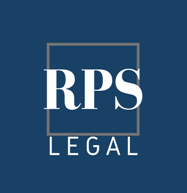A common reason to change a sole proprietorship into an LLC in the Netherlands is to expand the company and broaden the business activities, at the same time increasing revenue.
It is common for entrepreneurs to start small and expand as their business gains momentum. However, the decision to change the business form brings with it a series of legal implications.
The experts at our Dutch law firm highlight the main issues entrepreneurs need to take into consideration when changing the business form.
Table of Contents
Changing the type of company in the Netherlands
The most important difference between the sole proprietorship and the limited liability company in the Netherlands lies in the investor’s liability. The sole proprietorship is the simplest business form in which the founder is fully liable for the debts and assets of the business. Special consideration must be made concerning this liability and the associated risks when changing the type of company, especially if there are some debts in the former sole proprietorship.
Investors who want to limit the risk will often open a limited liability company that will be used to replace the former sole proprietorship. The debts of the simpler business form can be recovered in the form of private assets, in the new company. An advantage is that the investor will only be liable up to the amount of the invested share capital and his private assets will be protected. Our Dutch lawyers can give you detailed information on liability and the treatment/transfer of assets.
Sole proprietors who want to convert their current business form will need to open a company in the Netherlands and re-sign the existing business agreements. The most notable tax implications include the fact that the company will be subject to a corporate income tax of 20% or 25%, depending on the company’s profits.
Changing the business form will also include additional steps, such as VAT registration in the Netherlands. This is done for all businesses that perform VAT-taxable transactions and companies have access to three different VAT rates, such as 21% for standard goods and services, to 9% for certain goods and services, or 0% for others. Our team can give you more details about these rates and the registration steps.
EORI registration is required if the newly transformed company will engage in economic activities within and outside of the EU.
The characteristics of the private limited liability company in the Netherlands
The private limited liability company is preferred when shifting from a sole proprietorship because of its lower requirements for a minimum issued capital and the less stringent accounting and reporting requirements. Only one founder is required and the company may have only one shareholder.
Our tax calculator can help you gain an initial estimate of the company taxes for your new business or the newly changed legal entity.
Moreover, our Dutch lawyers can provide counseling and legal advice on the main taxation issues, including tax compliance, annual reporting or tax minimization.
Contact us for more information on the laws concerning corporate governance and company incorporation in the Netherlands.

